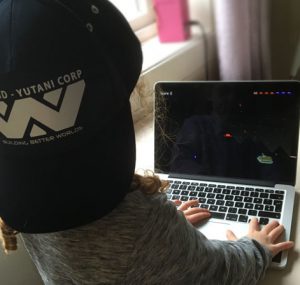Following this post, this contains a review of the sci-fi books I have read lately in no particular order. Book explanations are very light on purpose, since I do not want to spoil the books.
The TLDR: The books I enjoyed the most of this batch, were Cixin Liu’s Three Body Problem books. The last two books in the series are not an easy read, but they are worth it, and I enjoyed them despite inconsistent pacing, and huge differences in style and scope.
I also read The Expanse and Rendevouz with Rama, but they are both great, and well known to most, I do not really have anything to add.
Adrian Tchaikovsky – Children of time
The last humans leaving a dying Earth reach a terraformed planet with a spider civilisation which has been helped along by a human scientist. We follow the spiders as their society advances, and the humans as they struggle to survive.
The book was a quick read. I enjoyed the chapters following the Spiders quite a bit, and the humans as as much. The book reminded me quite a bit of Vernor Vinge’s A Deepness in the Sky.
Martha Wells – The Murderbot Diaries
A security bot (an android overseeing a science expedition) has broken out of the system that constrains its behaviour. As a rogue bot it tries to keep to itself, but that becomes more and more difficult as the expedition makes some unexpected discoveries.
Very quick read. Mostly fine, but I feel like it resorts to breaking into systems as a quick fix for most problems encountered. This gets very predictable and feels too easy a lot of the time.
Ann Leckie – Provenance
A sci-fi mystery, set in the same universe as Ancillary Justice. It explores inheritance, culture collisions, and planetary and interplanetary power struggle from the perspective of a very small player Ingray who has taken a huge gamble to become heir to her adoptive mother.
I enjoyed this. A turn to local small scale politics compared to Ancillary Justice/Sword/Mercy and not as memorable as those books.
Alfred Bester – The stars My Destination
Interesting exploration of a society where teleportation (jaunting) to anywhere you can visualise within a certain distance is possible. It follows a man who was marooned on a spaceship, and who when saved goes after the crew of the ships that left him behind.
Well pulled off. In general I think abilities like jaunting are a bit too powerful, and typically lead to silly logical problems very easily. The Stars my Destination, probably has those, but they are not very apparent.
Alistair Reynolds – Revelation Space
Revelation space is a galactic scale space-opera where we follow the Lighthugger ship Nostalgia for Infinity, which Ultranaut crew is looking for someone to treat their captain from an illness. That someone is an archeologist studying the death of a long dead race called the Amarantin on the planet Resurgam.
Solid space-opera on a galactic scale. Contains an interesting explanation for the Fermi Paradox.
Yoon Ha Lee – Ninefox Gambit
Explores a universe where technology is based on populations following specific patterns. In the society we follow, their technology is based on the populations belief in the imperial calendar and the associated culture. Calendrical rot (heresy) must be avoided at all costs.
Very hard to follow initially, and sometimes very confusing, but I sort of enjoyed it. It was very hard to tell if it is consistent with itself, since the concepts are so foreign. I think I have to read it again to form a better opinion.
Kim Stanley Robinson – Aurora
Humanity has sent an expedition (generation ship) to a possibly habitable planet around Tau Ceti. The mission is to colonise this planet after traveling for more then a hundred years. We follow the humans and the ships AI as they struggle to survive on the way.
Robinson writes in his very (maybe overly) detailed style, with lots of details on environmental systems and specific challenges faced by the biomes on the ship. In some cases it works well, in others it feels a bit like the author researched this, and so it has been put in regardless if it fits or not.
Cixin Liu – Three Body Problem trilogy
It is hard to write anything about this book without spoiling too much. In the first book, we initially follow a Chinese police officer as he investigates the deaths of several scientists. These are connected to interstellar messages sent by a astrophysicist several years earlier.
The next two books follow up on the events of the first, but they are very different. The scope increases a lot as the books go on. The trilogy (especially book 2 and 3) is quite critical of human society, and explores how we fail to make good collective decisions as a species. It is mostly ok reasoned and well integrated in the story, so it never feels out of place.
The series is great, and I recommend it to everyone. Some parts are a bit slow and feel very obscure at first, but they are well worth the payoff.J

